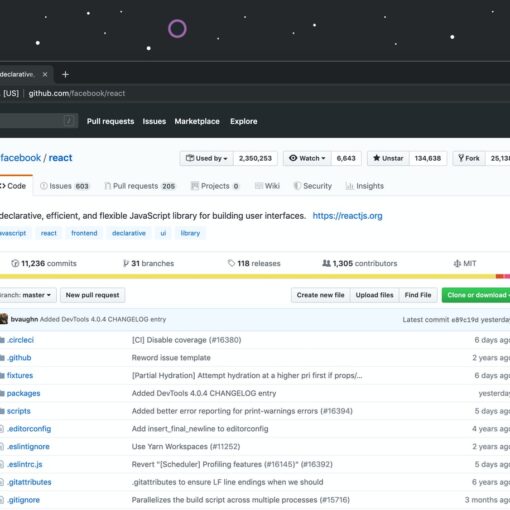
Imagine if every time you stepped into a coffee shop, you only paid for the exact amount of caffeine that jolted you awake, while every other sip was on the house. That’s kind of what Pay-Per-Click (PPC) advertising is like, except instead of coffee, you’re paying for the attention span of internet strangers—and instead of just waking up, you’re trying to make them buy something. Welcome to the wild, wild west of online advertising, where every click counts…and some of them cost more than your breakfast.
You might think, “But aren’t we all too smart to fall for this clicking nonsense?” Spoiler: No. Humans have been drawn to shiny things since cavemen invented fire (and by “invented,” I mean “accidentally discovered while doing something unrelated”). In the modern world, the shiny thing is your ad, and clicking is the new chasing it with a club. Buckle up—you’re about to learn why paying for clicks isn’t as crazy as it sounds.
Pay-per-click advertising, or PPC, is like the fast food of marketing—quick, satisfying, and if done right, it hits the spot without blowing your budget.
The beauty of PPC is that it lets you skip the slow burn of organic growth and get your product or service right in front of people who are ready to bite. But instead of greasy fries, you’re serving up targeted ads to hungry consumers who are already searching for what you offer. The best part? You only pay when they actually take a bite—er, click.
If you’re tired of shouting into the digital void and hoping someone hears you, PPC is your megaphone. It gives you control over who sees your ads, when they see them, and how much you spend getting their attention. So whether you’re a small business looking to make a big splash or a seasoned marketer wanting instant results, PPC advertising is the shortcut to visibility that you’ve been waiting for.
Advertising budgets are limited, and consumers are increasingly finding ways to avoid ad displays on websites, social media sites, and mobile apps. Is pay-per-click advertising the answer? The short answer is yes, because pay-per-click ads are determined by how many times a user clicks on an ad rather than how many impressions it has had. If people are clicking on the ads more often, they’re being shown more often.
Google’s pay-per-click advertising, also known as PPC, is one of the most effective types of online advertising. With a wide reach and low cost, the number of advertisers on Google have grown exponentially. PPC advertising can be used to target potential customers who are close to making a purchase by using bidding systems that emphasize the urgency associated with a customer’s current shopping needs.
Advertisers who pay a fee per click on their ad in a search engine or social media platform can track the effectiveness of their advertising campaigns with detailed analytics. The most popular ads are those that do the best job of matching up to a searcher’s intent.
PPC advertising has shown to be quite helpful to all parties involved. A pay-per-click (PPC) campaign is one method of driving visitors to your website. Some of the advantages of pay-per-click advertising are as follows:
Using a PPC campaign, you would be able to quickly establish a daily budget, which would be beneficial for financial planning. If the campaign is doing well, the budget might be raised as well. As a result, the success of the PPC campaign will be determined by daily income.
* Well-planned target campaign – PPC is a well-executed target campaign. You have complete control over the selection of keywords and can guarantee that your website is seen by the audience you are trying to reach.
* Campaign Flexibility – Pay-per-click advertising (PPC) aids in highlighting the brand name. It is possible to include the essential features and keywords on an as-needed basis. If the provided set of keywords does not work for you, it is simple to delete them and replace them with new ones that perform better. You may launch new advertising components in a short period of time. Due to the fact that you are making changes to your website, this will also assist you in enhancing your search engine rating.
With pay-per-click (PPC) advertising, you are charged according to the number of clicks you get. In contrast to conventional marketing tactics, the primary purpose of a pay-per-click campaign is to ensure that you only pay for actual individuals. People carefully consider what they genuinely want to read on this site, then click and explore through the site after giving it some attention.
The website has the potential to be used for testing purposes if you have just released a product and would want to know how well it is doing in terms of customer reaction. Knowing the number of clicks on a product or service may be useful in determining the level of demand for that product or service.
The cost of this strategy will be less expensive than that of standard selling and advertising methods. In addition, you can quickly assess the effectiveness of the program and keep track of the advertising method using simple tools.
* Immediate Result – A well-managed PPC campaign may generate greater income in a very short period of time. You have the information you need to track the number of clicks and the amount of money made.
It should be obvious by now that pay-per-click advertising contributes to the development of brand recognition. Although they may not click on the link, those who see the advertising on search engine result pages are more likely to read it since it is larger and more prominent.
To summarize, pay-per-click (PPC) advertising is a simple method of generating traffic and reactions. It is a cost-effective method of promoting goods and services since the key to success is in selecting the most appropriate keyword, which can be changed to reflect current market circumstances as needed. As a result, choose an expert SEO firm that has extensive experience in creating efficient PPC ads right away.
At the end of the day, PPC advertising is all about efficiency. Why wait for potential customers to stumble upon your website when you can strategically place yourself right in their path? It’s fast, measurable, and adaptable, giving you the flexibility to tweak and optimize in real time. You’ll know exactly where your money is going and can make adjustments before your budget gets out of hand.
So, if you’re ready to stop hoping for clicks and start paying only for results, it’s time to give PPC advertising a serious look. After all, in the competitive world of online marketing, waiting around for organic growth is like watching paint dry—slow and frustrating.
Suggested Resources:
The Basics of Pay-Per-Click Advertising
http://www.wordstream.com/basics-of-ppc
How PPC Can Boost Your Business
http://www.hubspot.com/ppc-advertising-benefits
Maximizing ROI with PPC
http://www.semrush.com/maximize-ppc-roi

Kevin Collier is a seasoned writer and technology enthusiast with a passion for exploring the latest industry trends. With a background in digital marketing and content creation, he brings insightful perspectives to imhits.com on emerging technologies, innovations, and their impact on everyday life. When he’s not writing, Kevin enjoys experimenting with new gadgets and sharing his knowledge with fellow tech aficionados.





